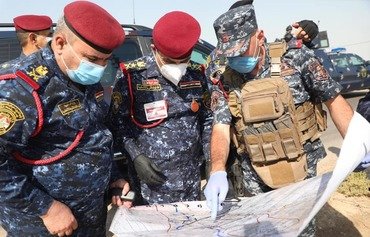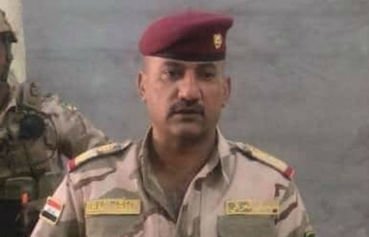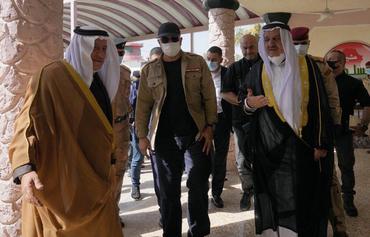Iraqi forces have tightened control in northern Baghdad's al-Tarmiya district in an effort to secure the strategic area against "Islamic State of Iraq and Syria" (ISIS) threats to the capital, a tribal leader told Diyaruna Wednesday (November 4th).
For about a month, units from the army's 6th Division and military engineering teams have been taking extensive fortification measures to close openings and passages that ISIS elements can use to infiltrate into Baghdad.
They have also set up fixed observation posts in orchards to prevent militants from taking refuge there.
Army forces have launched a major campaign to bolster security in the centre of the district and its outskirts, particularly in the areas separating Baghdad and Samarra in Salaheddine province such as al-Abayji, said Sheikh Muayad Khalifa Burh al-Mohammadi, a tribal leader in al-Tarmiya.
![Iraqi forces on July 4th conduct a search campaign for ISIS remnants in northern Baghdad's al-Tarmiya district. [Photo courtesy of the Iraqi Ministry of Defence]](/cnmi_di/images/2020/11/04/26854-Iraq-army-security-600_384.jpg)
Iraqi forces on July 4th conduct a search campaign for ISIS remnants in northern Baghdad's al-Tarmiya district. [Photo courtesy of the Iraqi Ministry of Defence]
The fortifications include building an earthen berm and an eight-kilometre concrete fence equipped with watchtowers to spot infiltrators, he told Diyaruna, adding that checkpoints have been set up near groves and areas with dense vegetation.
Iraqi forces have also increased fortifications around the headquarters of army regiments and brigades in the district, and beefed up the units holding the ground by more than a third, he said.
These measures are aimed at "tightening control over the district, which is critical for maintaining Baghdad's security", said al-Mohammadi.
The measures taken "do not affect traffic or daily life in al-Tarmiya, and residents are going about their lives normally", he added.
Increased security benefits residents
The security situation in al-Tarmiya is "largely stable", as the threat from ISIS sleeper cells has significantly diminished, al-Mohammadi said.
Al-Tarmiya residents are helping security forces protect their areas, he said, "because they understand that increased stability leads to a better life, job opportunities, more services and an economic renaissance".
Al-Mohammadi said that search campaigns in the wake of the terror attacks in the district, including the attack that killed Brig. Gen. Ali Hamid Ghaidan al-Khazraji in July, have contributed to improved security.
This has pushed many of the district's estimated 5,000 displaced residents to return to the area and resume their work, he said.
He called for forming "a special regiment or brigade of at least 500 fighters from al-Tarmiya tribes to give strong support to security forces and take part in maintaining security in their areas".

![A security conference was held in al-Tarmiya district on October 25th to strengthen security co-operation between army forces and the local tribes. [Photo courtesy of the Iraqi Ministry of Defence]](/cnmi_di/images/2020/11/04/26853-Iraq-Tarmiya-security-600_384.jpg)






